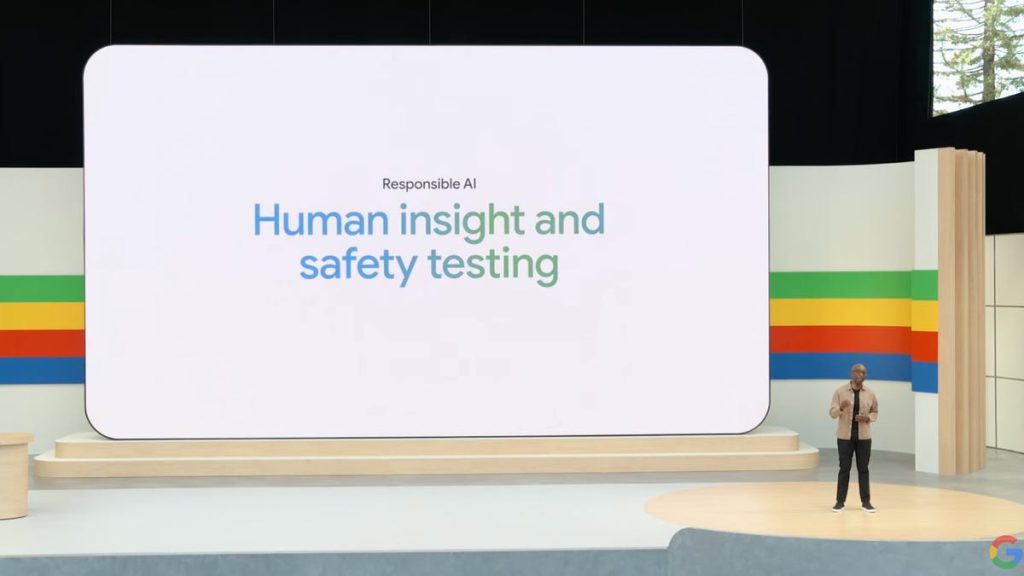Artificial intelligence (AI) has significantly advanced over the last year and a half, with chatbots and generative AI tools becoming increasingly capable of engaging in human-like conversations, writing convincing emails and essays, producing realistic audio, and generating photos and videos that are almost indistinguishable from real ones. However, with this increased power comes the need for responsible handling of AI, as there are concerns about potential misuse by humans or unintended actions by AI itself. To address these issues, companies like Google are emphasizing the importance of responsible AI at events like Google I/O, where they outline their strategies for ensuring AI is developed and used ethically.
Google is focusing on responsible AI by incorporating both automated and human resources to research potential harms and misuse of AI technology. Other companies such as OpenAI also highlight the need for AI principles to balance innovation with safety. Various tech giants, including Microsoft, Meta, Adobe, and Anthropic, have dedicated pages on responsible AI to address the evolving challenges as AI continues to produce increasingly realistic images, videos, and audio. Google is actively working on several initiatives to promote responsible AI, such as AI-assisted red teaming, where AI agents compete to identify weaknesses in systems. Additionally, Google is expanding its Synth ID tool to help prevent the misuse of AI-generated content for misinformation by adding watermarks to text and video content.
Google’s responsible AI efforts are not just about preventing misuse but also about contributing to societal benefits. The company is leveraging generative AI to aid in various fields, including healthcare, disaster prediction, and tracking progress on global development goals. For example, Google is developing Gem models like the Learning Coach to serve as tutors or assistants in education settings, providing study guidance, practice techniques, and memory aids to students and teachers. These Gems will be available in Google products like Search, Android, Gemini, and YouTube to enhance the learning experience.
In addition to addressing potential risks and preventing misuse, Google is also working on ways to use AI for societal good, such as improving education, healthcare, disaster response, and sustainable development goals tracking. By incorporating responsible AI principles into its technology development, Google aims to ensure that AI is used ethically and safely to benefit society. Initiatives like AI-assisted red teaming, Synth ID watermarking, and Gem models demonstrate Google’s commitment to developing AI technology responsibly and ethically, setting a positive example for the industry as a whole.
Overall, responsible AI is a critical consideration for companies developing AI technology, with a focus on balancing innovation with safety and ethical use. Google’s efforts in promoting responsible AI at events like Google I/O and implementing initiatives like AI-assisted red teaming and Synth ID watermarking demonstrate its commitment to addressing potential risks and ensuring AI development is done responsibly. By incorporating automated and human resources, Google and other tech giants are actively working to prevent misuse of AI while also leveraging AI for societal benefits like education and healthcare. Through these efforts, Google is setting a positive example for the industry and promoting the ethical use of AI technology.












